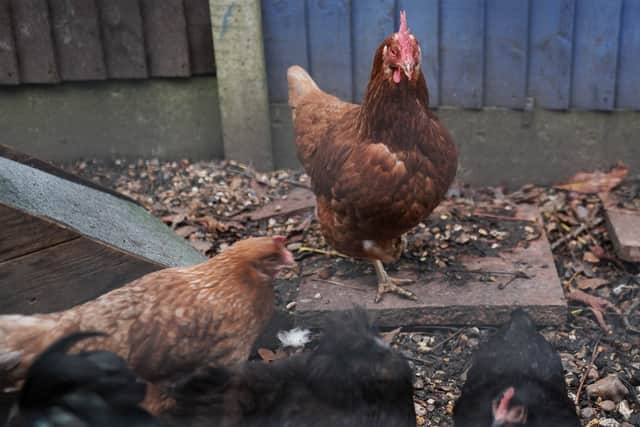Bird flu: UK scientists have gene-edited chickens to resist disease - but activists fear it may enable 'bad farming'
This article contains affiliate links. We may earn a small commission on items purchased through this article, but that does not affect our editorial judgement.
and live on Freeview channel 276
Scientists have successfully gene-edited chickens to have more resistance to bird flu, as the frequently deadly virus sweeps through the UK's farms and wild bird colonies.
In a new study published this week in peer-reviewed journal Nature Communications, researchers from the University of Edinburgh, Imperial College London and the Pirbright Institute bred chickens using gene-editing techniques to alter the section of DNA responsible for producing a protein known as 'ANP32A'. Flu viruses hijack this protein to replicate themselves.
Advertisement
Hide AdAdvertisement
Hide AdResearchers then exposed the gene-edited birds to a normal dose of the avian influenza - or bird flu - virus. Only one out of 10 became infected, and there was no spread to other chickens. When exposed to an artificially high dose, five out of 10 chickens became infected, but the amount of the virus found in their bodies was much lower than the amount usually found in normal chickens.


The gene edit also appeared to help limit the onward spread of the virus to just one of the four non-gene edited chickens in the same incubator. There was no transmission to gene-edited birds.
The scientists discovered that without the 'ANP32A' protein, the bird flu virus used two other related proteins instead, so they also gene-edited lab-grown chicken cells to target all three sections of DNA. This appeared to successfully block the virus in these cells.
Bird flu is a major global threat for both farmed and wild birds, and in rare cases the virus can even mutate to infect humans. This is the third year in a row that a highly infectious strain has swept through the UK's wild bird populations, with the RSPB warning that it may have already killed thousands of animals - and that 21 of the UK’s 25 breeding seabird species have now tested positive for the virus.
Advertisement
Hide AdAdvertisement
Hide AdUK supermarkets have also been blighted by egg shortages in recent months due to restrictions to prevent the spread of bird flu. The virus is estimated to have cost the poultry industry more than £100 million in losses.
However, Compassion in World Farming (CIWF) spokesman Peter Stevenson told the BBC that using gene editing to tackle diseases on farms could just make it easier to keep animals in poor conditions. "Highly pathogenic bird flu has not been caused by wild birds, it has been generated by the crowded, stressful conditions of industrial poultry production," he said.
Mr Stevenson said the best approach to dealing with bird flu was radically changing the poultry sector, "to reduce stocking densities and flock sizes, as well as to reduce the number of farms clustered together". CIWF said gene editing technology should only be used to reduce animal suffering, such as enabling hens to only produce female offspring to prevent huge of male chicks being killed at birth.
Comment Guidelines
National World encourages reader discussion on our stories. User feedback, insights and back-and-forth exchanges add a rich layer of context to reporting. Please review our Community Guidelines before commenting.
